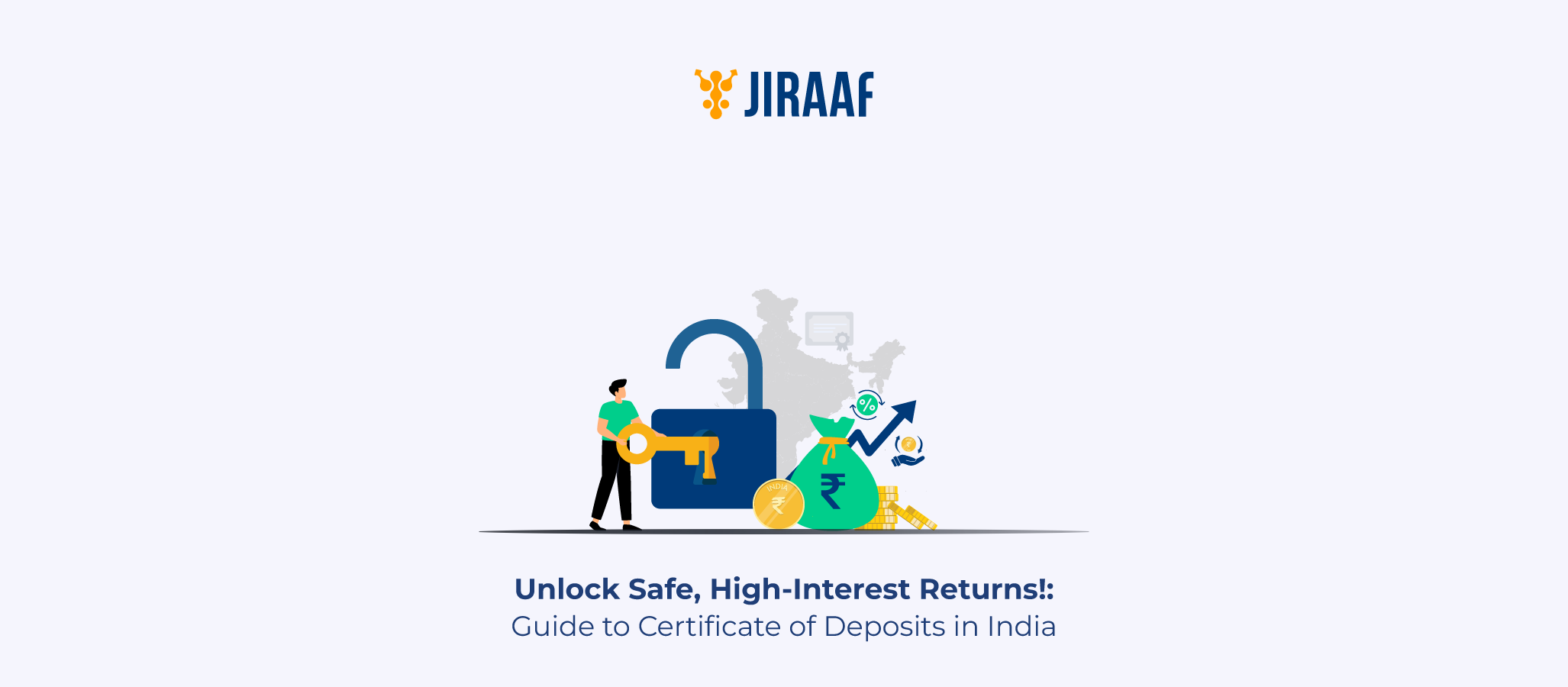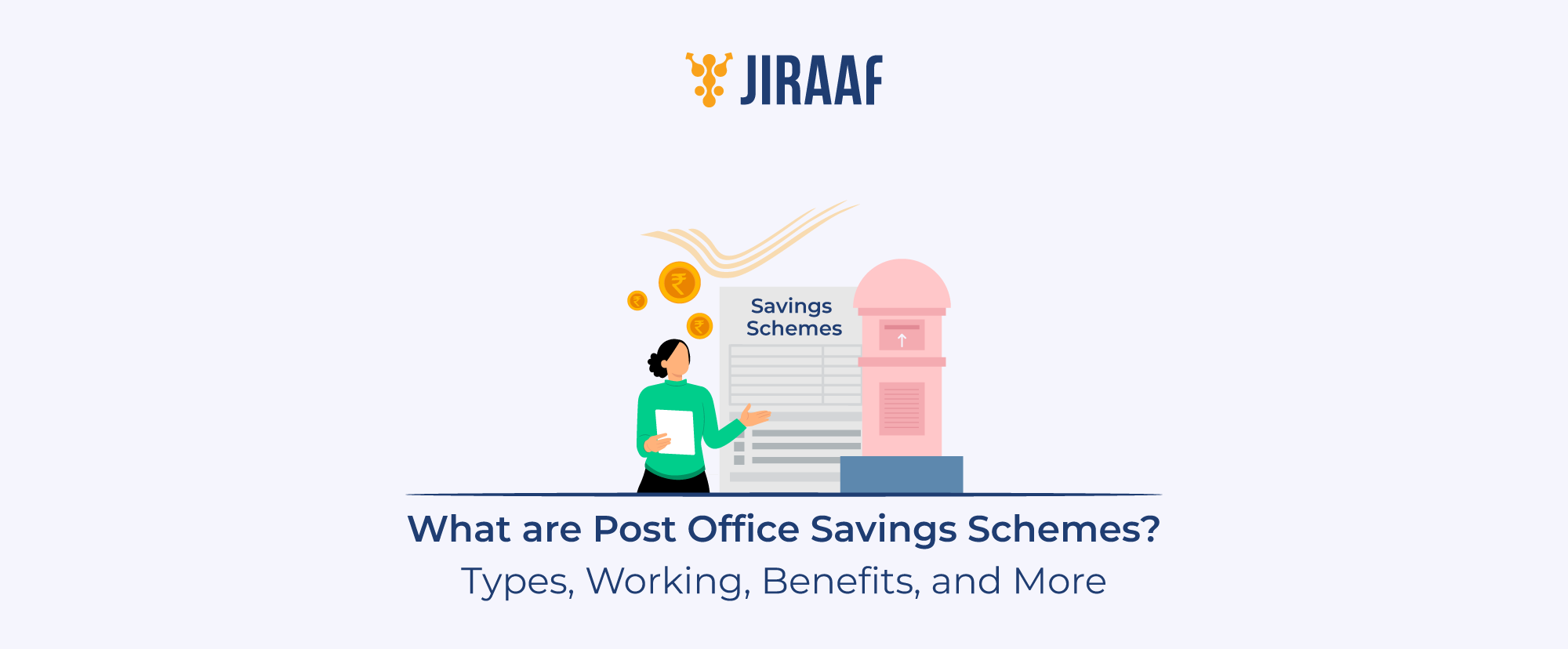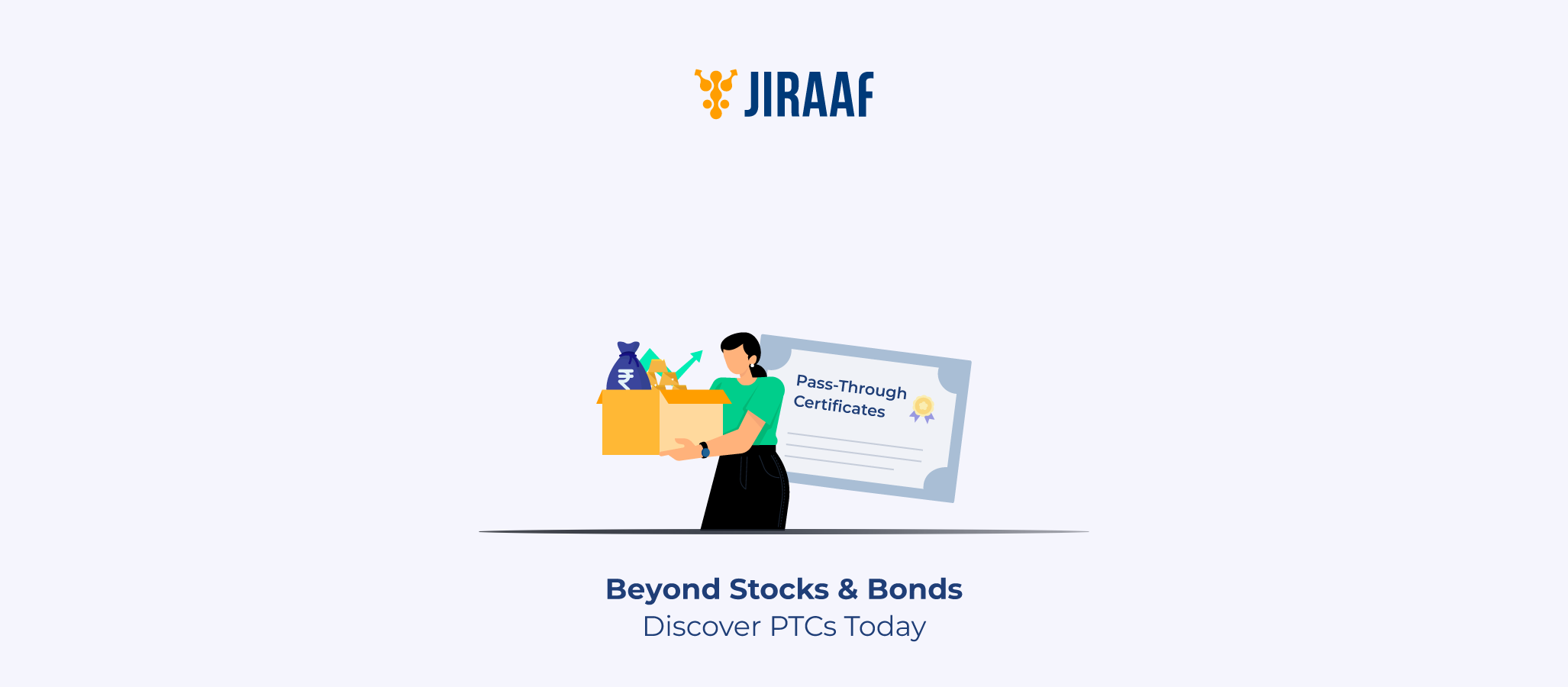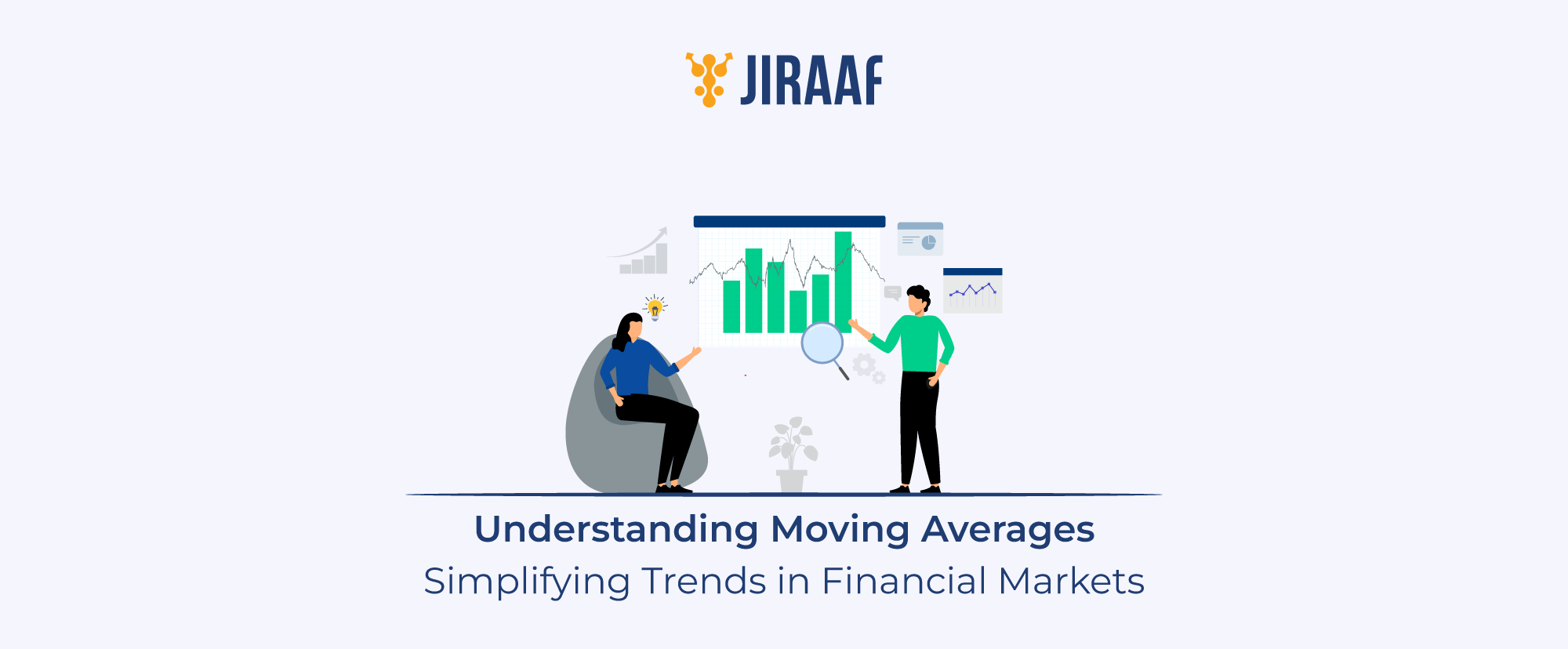Looking for a short-term, safe, and profitable way to park your extra cash? A certificate of deposit (CD) can be the most beneficial investment for you. CDs, which are offered by banks and other financial institutions in India, are ideal for conservative investors and businesses because they offer higher interest rates than traditional savings accounts while posing less risk.
This blog is your complete guide to Certificates of Deposit – from how they work, eligibility, tenures, and interest rates, to their differences from fixed deposits, investment strategies, and tax impact. Whether you’re a company in need of short-term funds or an individual with ₹1 lakh+ to invest, CDs can be a smart way to grow your idle money.
What is a Certificate of Deposit (CD)?
In India, banks and other financial institutions issue certificates of deposit (CDs), which are fixed-income financial instruments. It’s a written agreement in which the bank promises to pay you back your principal plus set interest after a certain amount of time.
Some of its key features are:
- Short to medium-term investment (7 days to 1 year for banks, up to 3 years for other financial institutions).
- Interest rates are higher than those of savings accounts.
- Low risk (issued by entities regulated by the Reserve Bank of India (RBI)).
- Negotiable instruments (secondary markets may sell it).
- A minimum investment of one lakh rupees (in multiples of larger denominations).
Features and Benefits of a Certificate of Deposit
- Fixed interest rates: Regardless of market swings, CDs guarantee steady profits by offering fixed interest rates.
- Flexible tenure: Banks (seven days to one year), and other financial establishments (one to three years).
- High liquidity (trading in secondary markets): CDs offer liquidity because they can be traded in the secondary market before maturity, unlike fixed deposits (FDs).
- Secure & controlled: They are issued by financial institutions and banks that are regulated by the RBI, reducing the risk of default.
- No penalties for early withdrawals (for secondary market sales): Unlike FDs, which impose fees for early withdrawals, selling CDs in the secondary market spares you penalties.
- Higher yields compared to savings accounts: Generally speaking, CDs pay 1% to 2% more in interest than savings accounts.
Types of Certificates of Deposit Available in India
There are primarily three types of CDs.
- Standard CDs: Banks and other financial institutions sell standard CDs. They have set terms and interest rates.
- Negotiable CDs: CDs that can be negotiated may be offered for sale on the secondary market. Usually, they come in bigger denominations.
- Non-negotiable CDs: These cannot be transferred or sold. They are typically issued to private investors for lower amounts.
How Does a Certificate of Deposit Work?
- Issuance: Banks/NBFCs issue CDs at face value (for example, ₹1 lakh).
- Interest payments:
- Cumulative: The interest paid at maturity.
- Non-Cumulative: Periodic interest payouts.
- Maturity: Principal and/or interest repaid at the end of the tenure (maturity).
- Secondary market trading: You can trade CDs before maturity if liquidity is needed.
Eligibility and Minimum Investment Criteria
You can invest in CDs if you fall under one of the following categories:
- Individuals (through primary/secondary markets).
- Corporates.
- Banks & other financial institutions.
- Trusts & Non-Resident Indians (NRIs).
The minimum amount required to invest in a certificate of deposit in India is ₹1 lakh, and any multiples after that.
Certificate of Deposit vs Fixed Deposit: Key Differences
| Characteristic | Certificate Deposit | Fixed Deposit |
| Minimum Investment | ₹1 lakh, and its multiples thereafter. | Usually, ₹1,000. Nevertheless, it is dependent on specific banks, post offices, and NBFCs. |
| Investment Tenure | Seven days to one year (for commercial banks) and seven days to three years (for financial institutions). | Seven days to 10 years. |
| Interest | Fixed or floating interest rate, and generally higher than bank FDs. | Interest rates are decided by each bank and NBFC based on the size and duration of the investment. Rates stay the same for the duration of the contract. |
| Discount on face value | Allowed. | Not allowed. |
| Collateral against loans | Can not be used. | Can be used. |
| Higher interest rate for senior citizens | Interest rates are the same for all investors. | Provided. |
| Tax benefits | No tax exemptions under any conditions. | Some FD schemes offer tax deductions. |
Should You Invest in a Certificate of Deposit?
A CD can be a wise option if you’re searching for a secure, short-term avenue to keep your money while generating more effective returns than a savings account. When the market is erratic, CDs provide stability, thanks to their fixed interest rates and government-backed security. Since early withdrawals cannot be made without selling in the secondary market, they are best suited if you have at least ₹1 lakh to invest and if you do not want short-term access to your money.
However, if you need flexibility or are working with smaller sums, CDs might not be the ideal fit. They have a higher minimum investment than fixed deposits, and the interest that you earn is fully taxable. A CD might be a fantastic addition to your portfolio if you’re comfortable with locking up money for a few months to a few years and want consistent returns. However, you might want to look at debt mutual funds or fixed deposits if you seek tax advantages or liquidity.
Conclusion
A desirable balance between a long-term fixed deposit and savings account is offered by certificates of deposit. CDs’ higher interest rates, principal protection, and secondary market liquidity make them especially appropriate for treasury departments of firms that handle temporary cash surpluses, HNIs looking for higher yields on their idle capital, and those investors who might require cash before maturity.
However, CDs might not be the best option for small investors due to the taxable interest and ₹1 lakh minimum investment. Debt mutual funds or fixed deposits may be better options for people with lower sums. Before investing, evaluate CD rates offered by top banks such as SBI, HDFC, and ICICI. You should also take your tax status and liquidity requirements into account.









